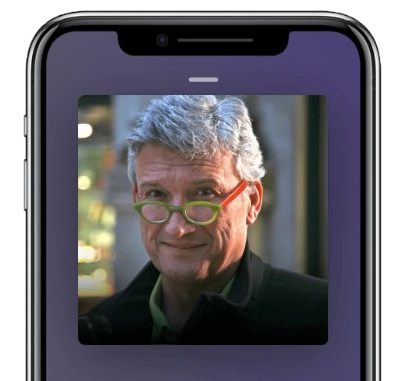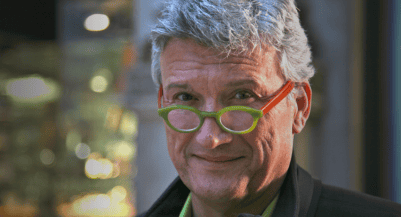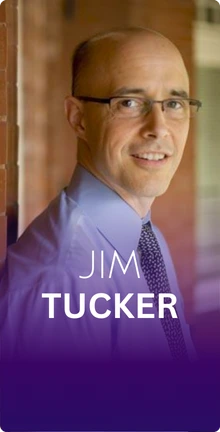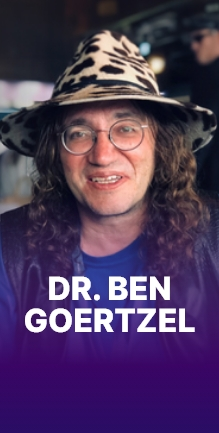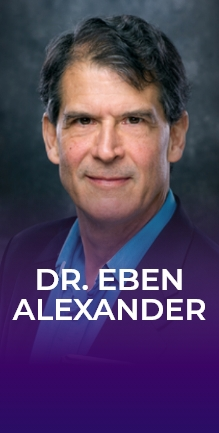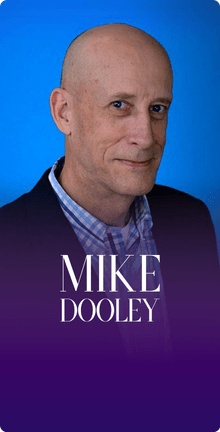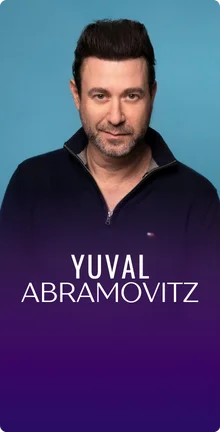In this Episode
- [04:20]Dr. James Doty shares his personal journey of meeting a woman in a magic shop who taught him mindfulness and self-compassion, transforming his outlook on life and success.
- [09:27]Stephan and Dr. James touch on beliefs, the illusion of self, and the impact of past experiences on shaping individual identities, with Dr. James sharing a personal experience with astral projection.
- [17:25]Dr. James delves into the human tendency to attach power to external objects or beliefs, such as crystals or religion. He emphasizes the importance of self-awareness and acceptance in processing events without judgment.
- [29:01]Dr. James and Stephan talk about the concept of truth as a multidimensional entity.
- [39:09]Dr. James shares his incredible journey from poverty to medical school acceptance, emphasizing the power of self-belief and the impact of words on one’s life.
- [44:33]Dr. James elaborates that accepting and integrating the shadow self is crucial for personal growth and self-acceptance, as resistance to these aspects causes suffering. Jungian psychology and shadow work are discussed in relation to this concept.
- [47:31] Here’s how you can connect with Dr. James Doty.
James, it’s so great to have you on the show.
Thank you, Stephan. It’s great to be here. Thank you for inviting me.
I said this already, but I just love the book Into the Magic Shop. I don’t read that many books through to completion, and I’m almost finished with this one, so that really says something. I’ve been reading it to my wife, Orion. Very rarely do I read books to my wife, but you’re one of the handful that I’ve ever read to her.
When you care for others, you're gratified by stimulating your reward and pleasure centers. Share on XWell, I have to say I’m a big fan of Sherlock Holmes and his pastiches, which come out in various forms. I read them to my wife at night, but it puts her to sleep, that’s why. So, hopefully, that’s not what you’re using it for, but if you are, that’s okay, too.
No, she loves it. Speaking of things to do with your spouse or partner, I got this concept from one of my other guests a while ago, Harville Hendrix. He wrote Getting the Love You Want and created Imago Relationship Therapy. He does this thing at night with his wife. It’s called the three appreciations or the daily appreciations. He tries to come up with new ones every night, but he appreciates three things about his wife, and then she does the same with him. They haven’t missed a single day in maybe a couple of decades.
That says something about discipline. I would say most of us are not quite that disciplined. But yes, I try to acknowledge my wife at least once a day.
Awesome. How did you end up writing Into the Magic Shop? That’s quite a departure for somebody who is a neurosurgeon, inventor, entrepreneur, and philanthropist. You’ve got a lot going on, and writing a book is not for the faint of heart.
No, it’s not. In fact, it took about two and a half years; it was very difficult. It’s difficult to organize your thoughts. Frankly, there has to be an arc in the story, right? I think probably everyone has an extraordinarily interesting life. But it’s like everything. How do you present it? But getting back to your question, why did I write this book? There were several reasons.
Many of us are hypercritical of ourselves, and these are in some ways evolutionarily related, but often, they go overboard and limit us.
One was based on my background, which from the book was one of growing up in poverty with an alcoholic father and a disabled, chronically depressed mother who attempted suicide, being evicted. That’s not the typical environment for someone to succeed in life. Unfortunately, like many people who have that type of background, ultimately, I thought the acquisition of stuff or chasing money, power, and position would fill the emptiness inside.
The strange thing for me was that meeting a woman in a magic shop put me on a different path. It turned out she was the owner’s mother and didn’t know anything about magic, but she knew about people. She and I immediately connected because she had this embracing, radiant smile and was nonjudgmental. She treated me not as a twelve-year-old but as a fellow human being, and we conversed for 20 or 30 minutes after I’d walked into the shop. She basically said to me, “I think I could really help you. I’m here for another six weeks. If you show up every day, that would be great.” I knew nothing about what she was talking about.
The other reality was that I had absolutely nothing else to do. So I did show up, and she had enough awareness to understand (1) that I was suffering and (2) that I had been traumatized by the chaotic environment that I was growing up in, which made it hard to concentrate and focus. She took the time to teach me what we would call a typical mindfulness practice. This was in the late sixties, so it was unusual to run across people with this expertise. But she also combined it in a slightly different way in the context of helping me understand that I had to have self-compassion.
Many of us are hypercritical of ourselves, and these are in some ways evolutionarily related, but often, they go overboard and limit us, and I was in that position. She taught me how to be kind to myself or be self-affirming. But she also made me realize that when you look through the lens of criticality towards yourself, this is translated into how you look at other people. So then, she taught me how to understand the nature of suffering and how it affects everyone. It’s not just me, and it’s not just about me. That changed how I looked at the world. I was much less suspicious, more thoughtful, and more kind, and in fact, I no longer carried hostility towards my parents, who I felt had failed me. It made me realize that they had their own struggles and they did not have the tools to help them. So, it had a profound effect.
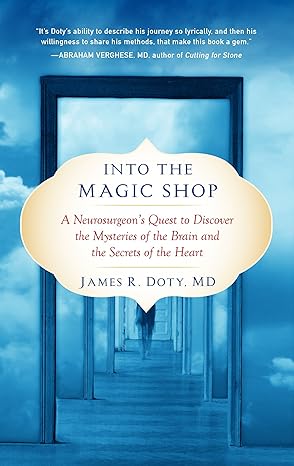
The last thing she taught me was actually a manifestation exercise, or how to manifest your intentions. Unfortunately, as a twelve-year-old, I didn’t have the insight, self-awareness, or wisdom to understand or use that information properly. In fact, I made a list of, I think, ten things that I wanted. One was to be a millionaire, and the other was to live in a mansion. One was to own an island. One was to have a Rolex watch. And on some level, I missed the point. I did accomplish all of those things. But at the end of it all, or after having climbed every one of these mountains, I kept thinking that my insecurity and shame would suddenly go away, and it never did. It made me ultimately realize that it is within our power.
It is only within our power that we can grant ourselves happiness. Once I understood that, it changed my outlook from one of sort of chasing the external markers of success in Western or capitalistic society to actually looking through a different lens of being of service, how to help others, because when you are in that mode, your physiology improving because our evolution is such that we are in some ways hardwired to care for others. This is in the context of our offspring, who don’t swim away or run off into the forest after birth and need us to care for them. When we care for them, we’re rewarded by stimulating our reward and pleasure centers through oxytocin and other neurotransmitters.
I want to put forth a wild assertion that you picked your parents. Has that ever occurred to you, that possibility that you may have picked your parents before you incarnated?
Well, if fundamental to that query is, do I believe in reincarnation? Which I don’t. That being said, of course, I’ve had a long-time or long-term relationship with the Dalai Lama, who, of course, does, and in fact, many of the spiritual leaders and gurus I know do. I’m sure you’re aware of the literature where some children recount past lives at an early age.
I’ve had Dr. Jim B. Tucker on the show to talk about that.
It is only within our power that we can grant ourselves happiness.
Is anything possible? Perhaps. Was there some karmic reason I was being punished to grow up in my background? Or was the nature of that growing up teaching me lessons to help me in this life and to decrease the endless cycle of reincarnation? Sure, anything’s possible, but you could say I believe in Zeus or fertility from trees and snakes. First of all, we don’t know. But second of all, my scientific mind resists going there.
I know so many interesting individuals in the world who have various belief systems, and my view is whatever it is you choose to believe, if it allows you to be your best self, it’s all irrelevant if it does not harm other people. I’m all for any belief system. For me, though, I have no attachment to any of them because I don’t think it’s necessary to have a moral, ethical framework of how you lead your life to believe in any of these things. From my own perspective, being of service by helping others not only improves my physiology but also improves my mental state, and I’m perfectly happy. And if there’s nothing there, that’s okay. I’m not attached to an afterlife or a reincarnation. I’m just trying to do the best I can in the circumstances my illusionary self has created for me. I say this because I was in a conversation with Deepak Chopra the other day about the illusion of self, which, of course, can take you down a variety of rabbit holes.
What did you take out of that conversation with Deepak?
I’ve also had these types of conversations with Sam Harris, David Eagleman, and a lot of other people. So it’s interesting because you commented about how people may have these past lives that stay with them after they’re born instead of being completely erased.
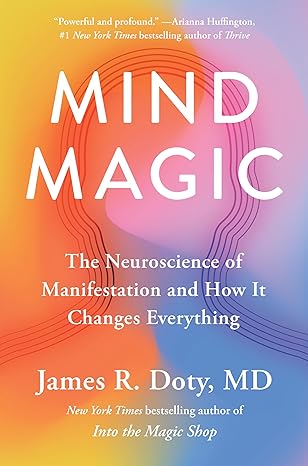
Who we become as people is a collection of our experiences. In some ways, if you leave out the spiritual reincarnated being floating on the outside, waiting to attach itself to you, you’re a blank slate. Whether you’re born in the West or the East, whatever that environment is becomes your reality and yourself; it is certainly not hardwired. There is nothing there. When we get deluded into believing there is a concrete self, we have to accept the fact that we have created it to allow us to live in this world. But it has no meaning.
As an example, if you try psychedelics, for some people, that causes a significant reset. What I mean by that is who we are as people, our drivers, our interactions, and our behaviors are manifestations of the baggage we have picked up growing up. Unfortunately, a number of people interfere with us being sort of our best selves or ideal selves, and they limit us. Many people then fall into addiction or other maladaptive behaviors, and they keep repeating them, whether it’s picking a partner or choosing which path to take when you’re given choices. When people take psychedelics or a subset of those people, it either resets them or starts them at zero or erases it or whatever it is that is limiting them. Then, they can see the world through a different lens and, in some ways, start over. I’ve seen this in numerous instances where people’s lives have been changed. So, not to get too long-winded in that explanation, but I believe there are many paths you can take, and we are deluded into thinking that who we are within this world is actually who we really are.
Have you had any kind of glitches in the matrix or glimpses into parallel realities, parallel universes, timelines or anything like that? Anything that makes you think like this reality isn’t all it’s kind of cracked up to be, or is there something more behind the scenes?
Well, as an example, I used to do something called astral projection when I was younger. I would go to different levels or states, and some beings were not as normal as we think of beings, and I interacted with them. Was that real, or was it a dream? I don’t know. I have no proof of either. It certainly was incredibly frightening in a few instances because, unfortunately, I was doing some very deep spiritual or meditative practices without a guide. That’s not the wisest choice to make.
Love, kindness, compassion, and connection are really the most important things that change your life. Share on XI woke up, and my father was at the end of the bed. He was an alcoholic and, obviously, a smoker and had the stigmata of that in terms of how he appeared. And he appeared, though, at the end of the bed, very healthy and happy. He greeted me and was there to say goodbye, apologize, and say everything was okay. It moved me very much and still does. But the question is, was that a dream, or was it real? I mean, all of us have had experiences where we have thought something was real and, in fact, was not. I don’t know. All I can do is process the event, looking for the source of it. Oftentimes, we’re not happy, or we’ll never know. I accept it for what it was. It meant a lot to me.
I’m not sure if I’m answering your question, but certainly, all of us have had a variety of experiences that seem far beyond our reality and how we define our reality. But again, the challenge is, where does it stop? For example, you have a subset of people who believe in the healing power of crystals. It goes to far extremes. What I would say for all of the people who head out in that direction, again, is that we have so much power within ourselves that our belief actually is the driver. It’s not necessarily the crystal or any other things that people carry around or choose to say, “This is where my strength or this is where my guidance or this is where my healing comes from.” It all comes from your brain. So, carrying a Bible around and saying, “Jesus cured me,” or carrying crystals around and saying, “That cured me,” what you’re really saying is you cured yourself. It’s just, unfortunately, that you transferred your own agency and power to something outside of yourself.
Who we become as people is a collection of our experiences.
Where’d you best get the sense of your own agency and power? What was the moment in your life or the experience that really gave you a glimpse of who you truly are?
Well, certainly, interacting with Ruth and the magic shop gave me a different view of the world because, like many people, we look outside ourselves as the cause of our reality or our problems, and we go through this exercise, “Well, if only they hadn’t done this, or if only I was offered this job, or if only I didn’t have these parents, etc.,” we believe that then that is the power that’s exerted over us that limits our availability or ability to do x, y, or z.
In some ways, it’s how we process events. An event in and of itself has no valence. It is neither good nor bad. We attach an emotion to an event, which gets processed and embedded and becomes part of “ourselves.” For most of us, it is something that we do not have insight or self-awareness that we’re actually doing. The same is true of attaching power to various things, of which people give up their agency. “Jesus is going to save me, or if I put this crystal around my neck, it will direct the energy towards me.”
I had a patient in his 20s who came in to see me who you could put in the category of bohemian or hippie type. He came in with multiple brain metastases. He explained that he didn’t realize that the quartz crystal he was wearing was directed out and not in, and he had let this bad energy enter him, and that was the reason he had these brain tumors.

That quote from Henry Ford, “If you think you can or you think you can’t, you’re right,” I think there’s some corollary to that quote that applies here. If you think you’re sick or you think you’re not, you know you’re right, or something like that, I don’t know. What are your thoughts?
No, I think that’s exactly correct. For example, if you say, “I can’t,” by definition, it’s not possible, period. I always try to say anything is possible. Now, if I were to say, “Well, I want to become an astronaut today,” that is highly unlikely. But I still believe that each of us has immense power. The challenge for many people is to understand that while the self is an illusion, we do have physical bodies, and there are constraints.
We have so much power within ourselves that our belief is actually the driver.
As an example, when you’re diagnosed with cancer, and they say, “Well, I’m going to forego normal treatments or traditional medical treatments, and I’m going to go on a strictly vegan diet and then have my crystals surrounding me every night,” well, the reality is, at least in 99.9% of cases, it’s probably not going to work. There has to be some tempering with an understanding of the limitations of our physical bodies and interacting with the environment specifically in that regard. But that is different than the power that we have if you want to call it, in our mind or consciousness. I think those are two different things.
So, the mind and the consciousness are two different things?
No. The mind and the body are two different things.
Do you believe that everything has consciousness?
Yes. You can also use the term consciousness, but certainly, everything has a vibrational energy, whether it’s a rock or you. An immense amount of literature demonstrates that often, with what we would call living beings, they will modulate that vibrational energy in a manner that aligns with others around them. While you could sit there and argue, this is woo-woo. The fact of the matter is that a significant amount of scientific evidence demonstrates that reality.
The challenge for many people is to understand that while the self is an illusion, we do have physical bodies, and there are constraints.
What would be an example of something that really made you, I don’t know, more connected to the unseen world? Something that gave you a sign of a bigger picture? You shared your experience with seeing your dad, and that was incredible. I feel that that was 100% real. Have you had, for example, other communications with him since he’s passed? Any kind of, without a doubt, signs like, “Okay, there’s no chance this could have happened by accident,” or anything like that?
Well, I didn’t complete the story. He appeared to me at three or four in the morning, and then I got a call from his doctor that he had passed a few hours later. But I did have a near-death experience. I was out with some colleagues early in my neurosurgery residency. We had been drinking and ran into a tree. Long story short, I have had multiple significant injuries. I was operated on. They missed a bleeder in my abdomen, and my blood pressure dropped. I left my body, and soon thereafter, I had the classic near-death experience of going down a river of light towards sort of this light at the end of the tunnel, if you will, that was embracing me.
I had different individuals who I cared for or loved welcoming me. Many people sit there and say, “Well, clearly, that was the thing that made you who you are.” Unfortunately, it did not. To me, it was simply a physiologic manifestation of hypoxia affecting your visual cortex, and there’s a fair amount of literature written on that. So it had no impact.
I am trying to answer your question: how did I change? I’m not sure if I ever really changed. I’ve always had an openness to possibilities. It’s interesting because people ask me frequently, they say, “Well, you’re not a Buddhist, yet the Dalai Lama’s embraced you. You’re not Hindu, yet Amma’s embraced you. Sri Ravi Shankar has embraced you. Sadhguru, the pope and Desmond Tutu. How is it possible when you’re a “non-believer,” yet you seem to have this ability to connect with these individuals without knowing anything?” I shouldn’t say anything because I do know a fair amount about these various practices. But you’re not a follower. What I say is that these types of individuals live above their dogma.
When you are of service to others, it improves your physiology and mental state. Share on XWhat I mean by that is that dogma is very useful for a large segment of their followers. It gives them guidance, morals, ethics, and practices that elevate them. But all of these individuals live above these practices. They know that love, kindness, compassion, and connection are the most important things, and no religion is attached to that. There’s no separation. They understand that we are all one. Therefore, when they see someone, and I assure you that these individuals can immediately intuit, if you sort of are in the same place or on the same page as them, then they accept you. That’s been my experience. I don’t try to change anybody, either. I accept everyone and accept them at face value. In some ways, one of the most important things is to accept someone and be non-judgmental, recognize their dignity, embrace them as human beings without judgment, and understand everyone’s suffering. Everyone’s made mistakes. Everyone’s an imperfect, impermanent, incomplete being, have a love for them.
A quote goes something like this: Religion is like the menu and the spiritual truth of who we are and how the universe works, and God and everything is the meal. You can’t replace the meal with the menu, but the menu is a good descriptor to help prepare you or get you to the meal. But if it’s treated like a replacement, people go off track. That’s nowhere near the quote, but that’s the best I can come up with.

I think I understand. But taking that analogy a little bit further, unfortunately, baggage also makes us want to feel safe. For many people, that translated into choosing a tribe. Depending on the norms or beliefs of that tribe, many people actually embrace the edicts or philosophy, or if you want to call it religion, and no longer question anything. The idea that the menu contains many, if you will, religions or practices is true. In fact, you could argue that religion is a manifestation of two things.
One is the reality that beyond about 150 people, we cannot keep track of another. What I mean by that is, if it’s less than that, and I think it’s called Dunbarton’s number, we know almost everybody. If they deviate from the social norm or the tribe’s demands, then you will know who they are. Once you get beyond that number, people go off and do selfish or self-serving things. By creating a narrative that says there’s this omniscient being that sees all, and if you continue to fall into the practices of your tribe or religion, you’ll get everlasting life.
Everyone’s an imperfect, impermanent, incomplete being, so have a love for them.
Humans are the only species that have a perception of their finite existence. When you offer the subset of people everlasting life if they’re “good people,” this is enticing as the motivator to do the “right thing.”
That is really the source of most religions, if not all. And, of course, this idea of being around others makes you feel safe, but it also results in you having inherent biases, which then put you in conflict with many other people. Again, unfortunately, humans have a tendency to want to be in a group that is “right.” That means that there are other people who are wrong, and that creates conflict.
The reality is there’s no one who’s wrong in that context. We’re all seeking truth. This idea that there’s this ultimate oneness, or that we’re all connected in some way, we’re all matter, we’re all atoms, etc. That, at the end of the day, is the truth, I believe.
There’s this image I saw on social media. It’s a three-dimensional cylinder casting a shadow on a plane on one side. That forms a rectangle. A shadow creates a rectangle, and that is labeled with the word true. Then, perpendicular to that, on another two-dimensional plane, is a projection, a shadow cast from that cylinder. It’s a circle, and that is labeled as true, but the cylinder itself is three-dimensional, and that’s labeled with truth. We could argue, “Hey, that’s a cylinder,” and we can’t see the cylinder. That’s too high-dimensional for us. We’re just seeing the projection, like in Plato’s cave. We’re just seeing, “Oh, that’s definitely a circle.” “No. It’s definitely a rectangle, but we’re both right.” But we’re also only seeing a piece of the truth.
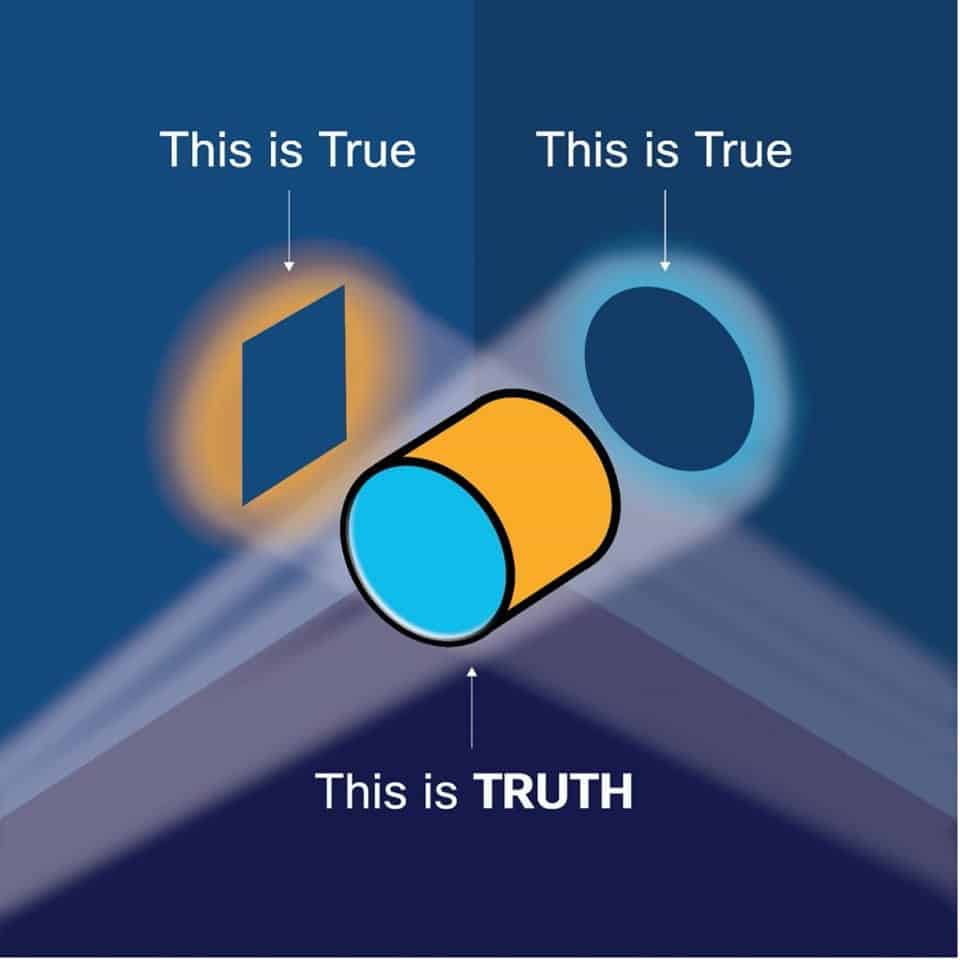
Yes, I’ve heard that, but this is analogous to, you know, it’s dark, and you have three or four people, and they’re each exposed to a part of an elephant, right? One feels the tail, one feels the trunk, one feels the ears, and one feels the foot, and they all describe completely different things, yet they’re all talking about the same thing. They just don’t have the complete picture. I think that this is why we need to have metacognition. We need to get outside of our prejudices, views, and limitations and understand that there are a lot of things we don’t see and accept as reality.
This comes down to, in some ways, this illusion of self. The self we have created is neither logical nor perfect and is not immutable either. Yet this is what we live in, and we think that that is it. It’s not. Having the understanding of that hopefully limits you from becoming judgmental of others. Who gave us the right to also define truth? But so many people feel absolutely certain they’re right. The interesting paradox is that if you have this certainty of being right, it actually increases your longevity because you no longer have the stresses of the possibility of uncertainty.
Everything has a vibrational energy.
In Kabbalah, they teach that certainty is not of this world, that it’s in the upper worlds, and you can be gifted some certainty by praying for it, for example. But that’s not part of this reality. By its design, this is an uncertain world. Praying for certainty beyond logic is a way to navigate that with a sense of certainty. Do you know anything about Kabbalah?
A little bit. But again, this is very similar to most religious practices. I think there are two problems. One is that most people do not absolutely follow the tenets of their religion, and because they’re ambiguous, confusing, and often not straightforward, that information’s often written down or contradicting. Because it’s an amalgamation of what many people have written, the very nature of that results in uncertainty. People create a narrative that works for them and does not follow the absolute tenets of their religious practice. It gives them moral and ethical guidelines and comfort in living in this world, but it can also be distorted.
Most people are moderates, and they define it as a mechanism to live in their reality. But there’s a subset of extremists who have the perception that “It’s us versus them, and I’m right, and you’re wrong.” This leads to horrible behaviors that, by any measure, you would not follow if you were of that particular religious practice. As an example, the words of Jesus have been distorted by far-right white evangelical nationalists to create a narrative that allows them to look in the mirror and say they’re right while they’re spewing hatred toward other people.
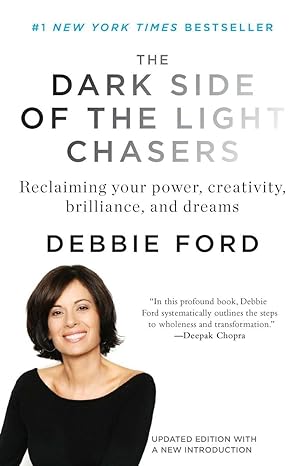
Yeah. By the way, I found that quote about the menu and the meal.
Let’s hear it.
“Aren’t all religions equally true? No, all religions are equally false. The relationship of religion to truth is like that of a menu to a meal. The menu describes the meal as best it can. It points to something beyond itself. As long as we use the menu as a guide, we do it honorably. When we mistake the menu for the meal, we do it and ourselves a grave injustice.”
That’s from Rabbi Rami Shapiro. That was much better than my mangled version.
Those are wise words. Well, it was somewhat mangled, but what can you say? I always mess up quotes.
Let’s shift over to manifesting. I loved the story in the Into The Magic Shop book where you recounted how you ended up getting into university. It was just against all odds. The only thing I can think of to describe it is that it was a divine setup. If you could regale our listeners with what happened because they probably didn’t read your book and then add whatever additional commentary, I think that’d be lovely.
You’re talking about university or medical school or all of the above?
I think it was a university where you didn’t even have an application form.
Oh, sure. So, as I had mentioned earlier, I grew up in poverty. I didn’t have mentors. My parents had not gone to college, and I had decided to become a doctor because in my fourth-grade class, they had a professions day, and a pediatrician came. I was inspired by his compassion and kindness and the fact that he was very kind and thoughtful when I asked him a question. At that moment, I decided to be a doctor. But wanting to be a doctor and becoming a doctor are two very different things. The way I ended up applying to college, in some ways, epitomizes the reality that I knew nothing and I didn’t.
We need to get outside of our prejudices, views, and limitations and understand that there are a lot of things we don’t see and accept as reality.
The way I ended up applying was I was sitting next to a girl in my science class—this was in the days before we had computers—she was filling out her application, and I looked over and asked her what she was doing. She looked at me and said, “Well, I’m applying to college. This is my application.” That was my first realization that it was time to apply to college. I said, “Oh, I haven’t gotten my application. Where are you going to college?” She said, “Well, I’m going to UC Irvine.” I said, “Oh, wow, that’s great.” She goes, “Well, where are you going?” I said, “I actually had never thought about it,” but I looked at her and said, “I’m going to UC Irvine.” She said, “Oh, well, I have an extra application if you haven’t received yours.” I said, “That’s fantastic.” I rushed, and I got it done. I applied to one college, UC Irvine, and that was the college I was accepted into. Now, the interesting thing about that is that, again, being accepted to college and finishing college are two different things. I had to leave multiple times to deal with family issues, for example, to get my father out of jail, to deal with my mother, who had attempted suicide, or to help deal with the fact that we were evicted. I kept leaving college, dropping out of classes, and coming behind to apply to medical school. My grade point average was 2.53. At that time, the average grade point average for acceptance to medical school was 3.79. Irvine, there was the requirement that you get a letter from the pre-med committee if you were going to apply to medical school. I went to make an appointment, and the secretary informed me that she would not give me an appointment. She looked at me and said, “No.” I asked, “Why?” She said, “Because it’s a waste of everyone’s time.”
Now, can you imagine, as a human being, telling another human being that they’re a waste of your time? And fortunately, I don’t know if it was maturity or belief in myself, but I looked at it and said, “I’m not leaving until you give me that appointment. If you want to call security, that’s fine, but I am not leaving.” So she did give me an appointment, and then I showed up for my appointment. Imagine what it’s like when you’re 20 or 21 years old, and you go into a room, and some of you have seen the photographs of Putin when he was at this long table, and he’s at one end, and there are these people at the other end, and he’s pontificating to them. In my instance, there were three people at one end of the table, and I was at the other end. The person in the middle, who was the chairman of the committee, had my file in his hand, and he stood up, took it, threw it on the desk, and said, “Okay, say what you want to say so we can get this over with.” This attempt at intimidation by somebody in power, it’s horrible. Fortunately, I was able to look at him, and I said, “I’m not going to allow you to objectify me based on my grade point average. You know nothing about me as a human being.” Then I proceeded to lecture them for about 20 or 30 minutes about the reality that nobody had the ability to judge one’s capabilities and that there’s no evidence whatsoever that beyond an above-average level of intelligence, it has anything to do with your success as a physician. Once I forced them not to objectify me, they had to look at me. At the end of this, they were actually all crying. As I was leaving, that secretary handed me a mimeographed sheet. Many of your listeners have no idea what a mimeograph sheet is. Before there were copiers, you would print things with a mimeograph. However, the brochure she gave me described a Tulane School of Medicine program for socioeconomically disadvantaged and minority students.
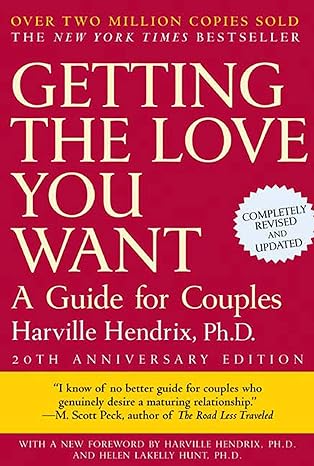
She looked at me and said, “The deadline for application is closed, but I don’t think this will matter for you.” I ended up calling the woman who ran the program, and she actually let me into the program. The premed admissions committee actually ended up giving me the highest letter of recommendation they could. It was quite extraordinary. In fact, I did not graduate from UC Irvine at the time because I didn’t have enough credits yet. Tulane accepted me without a degree and with a 2.53 grade point average. To tell you the rest of that story, which is not in the book. I had been a very successful entrepreneur, but Hurricane Katrina occurred. The dean of the medical school went into a depression and resigned. Tulane was trying to recruit a new dean, and it was a fellow from Harvard, but he wanted an endowed chair, which did not exist. An endowed chair means that somebody made a significant donation to name a chair after themselves, which provided some sort of supplemental income to the chairholder.
I ended up endowing that chair. So, the dean of the medical school today remains the Doty professor. I rebuilt the library. I set up multiple scholarships and ended up, also, independent of that, setting up charities that provide healthcare and, created blood banks all over the world, developed programs for people with disabilities and veterans and adolescents with AIDS-HIV.
The point of the story is that no one has the right to determine the capabilities of another human being. This is a failure for so many of us. None of us can look at another and say, “Oh, I know what you’re capable of.” This is a problem for many people because they forget that words have power. If somebody tells you who you respect that you’ll never amount to anything, this is the worst thing somebody can do to another. I was giving a talk to a group of nurses one time. We’re talking about some of these topics, and a woman in her 50s raises her hand and starts crying. She has a PhD and is an administrator—very accomplished. She said, “My father told me I would amount to nothing.” This woman’s whole life has been spent trying to say, “I am something,” because of what her father said. But imagine the difference in her, instead of creating this pain that lived with this person every day in terms of trying to accomplish something to please her father. “You know, you’re brilliant. You can do anything. I love you. I have confidence in you.” Imagine how her life would have been different. This is just to emphasize how words have power.

When this woman said, “It’s a waste of time,” implying that I’m a waste of time. Fortunately, I had learned enough and had enough confidence in myself that I didn’t listen to any of it. In fact, frankly, I don’t listen to anyone. I don’t mean that in a negative way. Obviously, we all listen to someone. But my point is, how many of us have had a brilliant idea or are excited about some idea we came up with, and then we share it, often with a loved one or somebody close to us or a relative, and they say, “Oh, that’s a waste of time.” Nothing can be more horrible than that.
Instead of saying, “I believe in you. If anybody can do it, you could do it.” It’s this type of positive affirmation that gives you self-agency instead of people, unfortunately, being told they can’t do something, and that gets embedded into their subconscious, which becomes a reality.
No one has the right to determine the capabilities of another human being.
This reminds me of a book I’m reading by Debbie Ford. It’s called The Dark Side of the Light Chasers. When somebody tells us as an impressionable child or an adult, but especially as an impressionable child, that we’re awkward or ugly or stupid or willful or whatever the label is, we carry that into our adulthood. It messes us up, as you alluded to.
But if we take on board the gifts of this situation, experience the label of it and everything, and recognize that we’re everything, we are selfish and stupid and ugly, and we’re also beautiful and brilliant and super smart and thoughtful. All these things, we’re everything because we’re like a hologram or like a fractal. It’s the entire ocean in a single drop. Anything we disown or disassociate from keeps rearing its ugly head over and over again in our lives. We take that for what it is: a mirror, an invitation to look at ourselves and to integrate everything that we have disowned and distance ourselves from the good and the bad, the light and the dark. And because we’re everything. And this has just been a profound experience to do that, that shadow work, those exercises through that book. Are you familiar with this book or the process of doing shadow work?
No, but I’m familiar with Jungian Psychology and the shadow self. I think it’s slightly different from what I was talking about in the sense that, yes, we have these components within ourselves that we’re ashamed of, that we’re embarrassed by, that we would prefer people don’t know about, and we hide it. What happens for most people, unfortunately, is they try to push it away and act like it’s not part of them. The challenge with that is that when you’re in a situation where you’re stressed, when you’re anxious, when you haven’t had sleep when you’re weak, you’re overwhelmed, unfortunately, this shadow self will come out. What ultimately has to happen is what you alluded to: you have to accept your shadow self. It’s not that you sit there and promote every aspect of it, but you accept it for what it is, integrate it into yourself, and stop resisting it. Resistance causes suffering, just as attachment does and just as craving does. Acceptance is the best path to move forward.
There’s so much more we could discuss, and I know we’re out of time. One other thing that reminded me of you is that I recently saw the movie Stutz. Do you know that movie on Netflix? It’s about Phil Stutz.
Yes. Was Seth Rogen the guy?
It’s Jonah Hill. Have you seen the movie?
No, I haven’t, but I’m familiar with it.
You have to see it. You’ll really enjoy it. I think there should be a documentary about you like that.
Acceptance is the best path to move forward.
It’s funny you say that because there is actually a woman who’s doing a documentary. Her name is Karen Lynn Gornick. It’s a weird thing to be in the middle of a documentary about yourself. And again, we’re talking about our shadow selves, so you don’t want people to know about mistakes you’ve made or your imperfections, but they’re there, and you just have to accept that. As another side note, my book Into the Magic Shop was actually optioned by Jon Hamm, the actor, to turn into a movie.
I hope that happens. Amazing.
Yeah, we’ll see. So does my wife. But she wants to play my wife while he plays me.
That’s funny. All right, well, good luck with that. That’s amazing. If our listener or viewer wants not just to pick up your books but also follow you, learn from you and your mission, and help support you with all the philanthropic endeavors that you’re on getting going here. Where should we send them to?
Certainly, one place is the center I run at Stanford, the Center for Compassion in Altruism Research and Education. You can find that at ccare.stanford.edu. I have a website called jamesrdotymd.com. There’s also a podcast called the Into the Magic Shop, with some interesting guests. You can also find me on LinkedIn, Twitter, and Instagram. I’m around. And if anybody has an issue, a problem, or a question, I’ll do my best to answer you. You can send me an email at jr****@******rd.edu.
Every one of us has the ability to improve the life of at least one person.
Awesome, thank you. You’re just a gift to humanity, so keep doing what you’re doing. You’re loved and appreciated by many.
Well, thank you, Stephan. I would also just like to say at the end of this, and our power is when we are of service to others. Many people will often say, “Well, I don’t have the money. I don’t have the time. I don’t have the resources.” But the fact of the matter is, every one of us, every day, has the ability to improve the life of at least one person, and it costs nothing. Sometimes, it’s just a smile. Don’t forget the power that you have to change someone’s life because when you do that, it actually changes your life. So, thank you again, and I appreciate being with you.
Thank you. And thank you, listener. We’ll catch you in the next episode. In the meantime, have a stupendous, amazing, fabulous week. I’m your host, Stephan Spencer, signing off.
Important Links
Connect with Dr. James Doty
Books
Businesses/Organizations
Film
People
Previous Get Yourself Optimized Episodes

